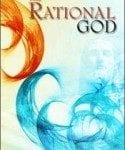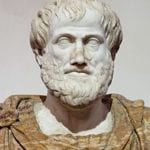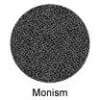The Rational God is dedicated to investigating the ultimate questions of existence. Such questions can be approached through science but even a scientific investigation requires contextualizing. Whatever science discovers is seldom final, a deeper explanation is usually needed. This is where philosophical analysis can help. The title is two words. Rational and God. I have no interest in irrational claims or notions of knowledge which require a suspension of my rational or empirical faculties. There is then, a very clear emphasis on the term rational. The God alluded to in the title is the … Read More...

Richard Dawkins
No blog or discussion on the nature of God or the intersection of science and religion would be complete without reference to Richard Dawkins. He is a great source of interesting posts and someone I … [Read More...]

What is The Rational God?
The Rational God is a science based approach to understanding nature or reality. Attempts at understanding our universe have been presented since man first made an appearance and in some ways the … [Read More...]

Fate and Final Causes
Science is often characterized as a study of cause and effect. Prior to science Aristotelian causes was the method of study, one of his four causes being the ‘final cause.’ A final cause reversed the … [Read More...]

Materialism and Physicalism
Materialism and Physicalism The heyday of materialism was the 19th century, when it seemed to be clear that in time the universe and everything in it would be explained by one thing, the material. … [Read More...]

A Definition of Monism
A Definition of Monism Metaphysical monism is an ancient problem which still continues to this day, at least for some. A definition of monism can be framed quite succinctly; monism states that there is just one kind of thing that exists in the … [Read More...]

Understanding Spinoza (Part 3): Freedom and Necessity
Understanding Spinoza (part 3): Freedom and Necessity When understanding Spinoza we discover that the most profound conclusion from his philosophy is to be found in Part I, Proposition XXIX. ‘In the nature of things nothing contingent is admitted, … [Read More...]

Understanding Spinoza (Part 2)
Understanding Spinoza (Part 2) This post is to develop further towards understanding Spinoza’s metaphysics and to look at the crucial ideas he raises. Spinoza’s main work, The Ethics, in effect introduces a set of definitions and elucidations of each … [Read More...]